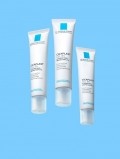IFSCC CONGRESS 2022 LONDON, UK
Phage ‘cocktail’ shows promise in targeting acne: Biocogent
![A carefully selected cocktail of live viruses can diminish Cutibacterium acnes in the skin and reduce inflammation - two aspects linked to blemishes and the skin condition [Getty Images]](/var/wrbm_gb_food_pharma/storage/images/_aliases/wrbm_large/publications/cosmetics/cosmeticsdesign-europe.com/article/2022/11/10/bacteriophage-therapy-for-acne-and-blemish-prone-skin-promising-says-supplier-biocogent/15926210-4-eng-GB/Bacteriophage-therapy-for-acne-and-blemish-prone-skin-promising-says-supplier-Biocogent.jpg)
The New York-based supplier had been conducting a series of studies on bacteriophage (live virus) therapy in blemish-prone skin, demonstrating the ability for a particular phage cocktail to reduce the levels of Cutibacterium acnes, a gram-positive bacterium linked to the skin condition of acne, as well as lower other inflammatory factors associated with this condition. The company was using a blend of phages from the Siphoviridae family of double-stranded DNA viruses, procured from an outside research group, launched as DermaPhage CA.
Acne a ‘common skin affliction worldwide’
Presenting research at this year’s IFSCC Congress in London, UK, Dr Paul Lawrence, executive director of research and discovery at Biocogent, said the “phage cocktail” targeted a widespread skin health concern in a fast-evolving space – the skin microbiome.
“We know that there’s been an exponential increase in what we understand about the skin microbiome,” Lawrence said.
“We’ve come a very long way from just culturing, to the revolution of signatures (…) where we’re able to look at other microbes on the skin, to now metagenomic sequencing – understanding the contributions of the skin biome. So, given all the knowledge we’ve accumulated, the best way I would describe the microbiome of the skin is diverse and quite dynamic.”
And for the skin health category, he said it was apparent Cutibacterium acnes was the most common skin affliction worldwide, with plenty of knowledge on how this bacterium contributed to imbalances in the skin microbiome for this condition.
Bacteriophages
A bacteriophage is a live virus which parasitizes a bacterium by infecting it and reproducing inside.
Used already in much genetic research, bacteriophage therapy was where the bacteriophage was used for the treatment of pathogenic bacterial infections. Emerging at the beginning of the 20th century, it was progressively replaced by the use of antibiotics in most parts of the world after World War II.
Bacteriophage therapy in vitro
Biocogent, therefore, had decided to invest in “embracing a more-than-century old therapy” long discarded by many antibiotic-consuming nations – bacteriophage therapy – for “very precise and targeted” work to target this bacterium.
Findings from a range of in vitro cytotoxicity assays had shown there was “never a blip on the radar in safety terms”, Lawrence said. And when tested on an in vitro 3D skin model for blemish-prone skin, even in a highly concentrated form, it worked in a safe manner with no morphological changes made to the skin, he said. Importantly, the phage cocktail had been proven to diminish the levels of Cutibacterium acnes in the 3D skin model and significantly reduce inflammation associated with acne.
As a raw material supplier, Lawrence said Biocogent's teams had been conducting compatibility studies with DermaPhage CA to understand how the blend could work in final formulations.
Compatibility studies and human trials
Findings from the compatibility research, testing around six different materials, he said, had identified two of the best candidates to blend into the phage cocktail as carriers: hydrolat and hydrolite in water.
In a human trial using this blended topical, on participants with blemished skin applying the formulation for one week, twice a day, there was a 32% reduction in sebum, he said. The study also measured the Coproporphyrin III metabolite, produced by acne and thus a “really great marker for seeing how much acne is present on the skin”, noting a reduction of 21%, he said.
Biocogent was now beginning a large clinical study that aimed to “reinforce these initial findings”, Lawrence said. “We do have clinical data where we’re going to extend this out to a month and continue with microbiome analysis.”
The reason the company had decided to abbreviate the first human pilot study to just seven days was because in all the in vitro studies conducted, “the effect had been really rapid”, and so the company wanted to see if, in an abbreviated in vivo study, the effect would be the same, he said.
Phage concerns and complexities
Asked by an attendee if mutation was a concern when working with bacteriophages, Lawrence replied: “Mutation is definitely a concern. One of the good things is these are DNA-based viruses. However, that still does not preclude any mutations coming into play, and as such, with each passage of these viruses, we’ve been looking at their behaviours and we’ve sequenced them and we’re looking to see if there are any mutations over time.”
At the same congress, Dr Magali Moreau, principle scientist and head of the microbiome laboratory group at L’Oréal Research & Innovation, also made a nod to the potential phages offered beauty in the skin microbiome space. But equally, Moreau also said that use of phages, much like live bacteria, was one of the most complex opportunities for industry because of how hard it was to select, formulate and ensure action with these ingredients in topicals.
![Red ginseng oil - extracted from the byproduct of traditional ginseng manufacturing - contains a plethora of active compounds suitable for skin and hair care applications [Getty Images]](/var/wrbm_gb_food_pharma/storage/images/_aliases/wrbm_medium/publications/cosmetics/cosmeticsdesign-europe.com/headlines/formulation-science/red-ginseng-oil-extract-promising-as-skin-and-hair-care-topical-finds-review/16147562-1-eng-GB/Red-ginseng-oil-extract-promising-as-skin-and-hair-care-topical-finds-review.jpg)

![Recent advances enabling better characterization of the skin microbiome has led to important findings [Getty Images]](/var/wrbm_gb_food_pharma/storage/images/_aliases/wrbm_medium/publications/cosmetics/cosmeticsdesign-europe.com/article/2023/01/20/la-roche-posay-reviews-skin-microbiome-wound-healing-link-identifying-promise-in-new-therapies/16102649-1-eng-GB/La-Roche-Posay-reviews-skin-microbiome-wound-healing-link-identifying-promise-in-new-therapies.jpg)
![Active ingredients can give makeup a 'skin care makeover' and tap into a range of important consumer trends [Getty Images]](/var/wrbm_gb_food_pharma/storage/images/_aliases/wrbm_medium/publications/cosmetics/cosmeticsdesign-europe.com/article/2023/01/19/skin-care-infused-makeup-to-flourish-amidst-post-covid-consumer-demands-says-globaldata/16100423-1-eng-GB/Skin-care-infused-makeup-to-flourish-amidst-post-COVID-consumer-demands-says-GlobalData.jpg)
















